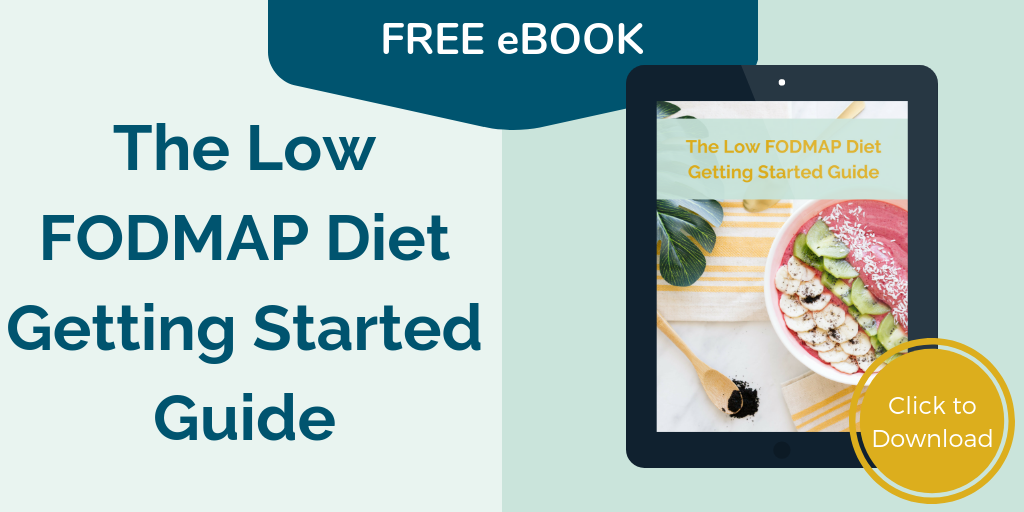IBS-Like Symptoms
Could Your IBS be Complicated by Another IBS-Like Condition with Similar Signs and Symptoms?
Research Update
Nickel Allergy, SIBO, and Non-Celiac Gluten Sensitivity Just Some of the Conditions Causing IBS-Like Symptoms
Headline: Awareness of IBS and IBS-like disorders could provide more specific dietary recommendations
What You Need To Know:
As we bring more awareness to IBS and digestive health disorders, we are getting more comfortable talking about our symptoms and seeking help. The unfortunate reality is that there can be a lot of shame associated with our symptoms, so this increased awareness is a much needed step in the right direction! You shouldn’t have to suffer with symptoms and let them control or define how you live your life. You deserve better!
Before seeking treatment for your digestive health symptoms, the first step is to get a diagnosis. If you suffer from abdominal pain, constipation, diarrhea, gas and bloating, IBS is a common diagnosis once other conditions are ruled out. There is a lot of evidence in the scientific literature that the Low FODMAP Diet is an effective diet for managing IBS symptoms. I’ve seen this in my own practice with my own clients too! But sometimes, it’s more complicated than that.
While IBS is becoming more common, sometimes it’s not the only reason you might be struggling to get your symptoms under control. If you’ve tried low FODMAP and you’re not seeing significant improvement, there could be something else going on in your body that is causing you to react to different foods, eating behaviours, and stressors in your life.
New research suggests that some individuals with IBS may also suffer from a number of different IBS-like conditions which could make treatment more complex. So what are these IBS-like conditions that can cause similar symptoms?
SIBO
- SIBO (Small Intestinal Bacterial Overgrowth) is a condition characterized by changes in the type and quantity of bacteria in the small intestine.
- When gut bacteria that usually lives in the colon makes its way into the small intestine, it can cause digestive disturbances that result in symptoms similar to IBS.
- SIBO is typically treated by using antibiotics to wipe out the bacteria that have migrated to the wrong place, and probiotics to restore the good gut bacteria right where it belongs.
- It is estimated anywhere from 4-64% of those with IBS also have SIBO, and it seems to be more prevalent in cases of diarrhea predominant IBS.
Celiac Disease
- Celiac disease is a type of inflammatory bowel disease that is triggered by the consumption of gluten.
- Due to the inflammation of the intestinal tract associated with Celiac Disease, absorption of energy and nutrients as they move through the digestive tract can be reduced.
- Celiac disease is usually diagnosed with a blood test and a biopsy or endoscopy where your doctor will check on the structure of the lining of the small intestine for signs of inflammation.
- The best treatment currently available is a life-long gluten-free diet.
Non-Celiac Gluten Sensitivity
- Non-Celiac gluten sensitivity is estimated to affect 0.1 to 1% of the population.
- It is not an inflammatory condition like Celiac Disease, but people often find their symptoms improve when eliminating gluten-containing foods from their diet.

Lactose Intolerance
- Prevalence of lactose intolerance appears to vary based on geographic location – Europeans who have previously consumed dairy products are less likely to have lactose intolerance compared to populations where dairy products aren’t traditionally consumed, like Middle East, Asian, and African countries.
- Lactose intolerance is caused by the body being unable to produce enough of an enzyme called lactase, which is necessary to digest lactose – the sugar naturally found in all dairy products.
- Lactose intolerance can be managed by restricting lactose in the diet, and in some cases, by taking a lactase enzyme prior to consuming lactose-containing dairy.
- Studies have found that lactose malabsorption is frequently associated with IBS. Those with IBS showed an 85% improvement in symptoms by restricting lactose in their diet, however, lactose restriction on its own is often not enough to achieve symptom relief.
Nickel Allergic Contact Mucositis
- Sensitivity to trace amounts of nickel naturally found in foods may also contribute to abdominal discomfort.
- Common foods containing trace amounts of nickel include: tomato, cocoa, beans, mushrooms, broad-leafed vegetables, whole-wheat flour, corn, onion, garlic, shellfish, nuts, and foods packaged in aluminum.
- Many foods that contain nickel are also high in FODMAPs, making it difficult to tell if symptoms are related to FODMAPs or another component in these foods.
- It is estimated that nickel allergic contact mucositis affects 30% of people in Europe, but much like lactose intolerance, this number may change based on geographic location, especially related to varying levels of nickel in the soil used for farming.
- Reducing the amount of nickel containing foods in the diet, increasing iron consumption, and increasing consumption of vitamin C are common strategies used to manage the condition.
No matter what type of digestive symptoms you might be struggling with, it’s important to work with a trusted, regulated health professional who is an expert in this area. The research is always building and changing, so you want a team on your side who is up to date with the latest evidence so you can get the best possible treatment. Getting a proper diagnosis from your doctor is the best place to start. If you’re looking to get clarity with your diet and food triggers, a Registered Dietitian who has experience with digestive health disorders will also be a great addition to your health care team.
Related Links:
Small Intestinal Bacteria Overgrowth (SIBO) and IBS
Digestive Enzymes and IBS: Lactose Intolerance
Gluten Free is Not for Everyone
The first step if you’re looking to improve irritable bowel syndrome (IBS) or another digestive disorder or disease, is to understand more about the Low FODMAP diet and if it can help. Download my free eBook to help you better understand this diet and get started implementing simple steps to get rid of symptoms like gas, bloating, pain, diarrhea or constipation related to IBS. Click here to get a copy emailed to you right away.
FODMAP Update
New Low FODMAP Products From Australia
Headline: FODMAP Friendly Coffee and Cacao Clusters
What You Need to Know:
Food for Health is an Australian company that offers good-for-your-gut muesli snacks. The company was founded by a naturopath after demand grew for the muesli products she was making for her private clients. Food for Health believes that wealth is measured by health, and their mission is to help us take care of our bodies and make healthy eating easier in our busy lives.
Their products are healthy, allergy friendly, made with simple ingredients, and made to easily to fit into busy lifestyles while helping to improve people’s well-being. Their focus is on gluten-free, wheat-free, fructose-free, and dairy-free products. FODMAP Friendly recently gave their stamp of approval to Food for Health’s Coffee and Cacao Fruit Free Clusters, which contain buckwheat, chia seeds, coffee beans and natural cacao.
The buckwheat and chia in these clusters offer a great source of fibre, but while some with IBS may benefit from increasing their fibre intake, others may find it makes their symptoms worse. It’s best to take an individualized approach with your fibre intake and see what works best with you body. Another thing to be aware of is the caffeine found in the cocoa and coffee beans in this particular muesli snack. Even though the product was tested and found to be low in FODMAPs, caffeine can be a trigger for some people, as it stimulates movement through the digestive tract. There is much more to effectively managing symptoms than just avoiding FODMAPs!

Headline: Simply Wize FODMAP Friendly Snacks
What You Need to Know:
Simply Wize is a gluten-free brand offered by the Australian company, Momentum Foods. Momentum Foods is a family owned business with over 15 years of experience in the gluten-free market, so they understand the need for convenient, gluten-free products that also deliver on taste. While looking for gluten-free products on store shelves won’t be enough it you’re following a low FODMAP diet, the Simply Wize product line offers a number of products that have also been certified low FODMAP by FODMAP Friendly, including:
- Almond Crispbread
- Cranberry Pistachio Crispbread
- Gnocchi
- Corn crunch (roasted corn kernel snack in lightly salted and BBQ flavour)
- Creme filled chocolate sandwich cookies
- Crackers (cheese, poppy seed, and tomato flavours)
- Pasta sauces (basilico, primavera, napolitana)
While it’s great that we are seeing new certified low FODMAP packaged foods available on store shelves, it’s important to remember that limiting the amount of processed and packaged foods we are consuming is also a big part of achieving long-term symptom improvement. While aiming for products with only a few simple ingredients can help you make the most of the convenience factor of having ready-made low FODMAP choices, the more you are able to prepare for yourself at home from fresh ingredients, the better off you will be.
Related Links:
What’s all the Fuss about Fibre?
Caffeine and IBS: How Coffee Affects Digestion
The FODMAP Friendly Certification Program
Carbohydrates and Proteins: The Difference Between Low FODMAP and Gluten-free


